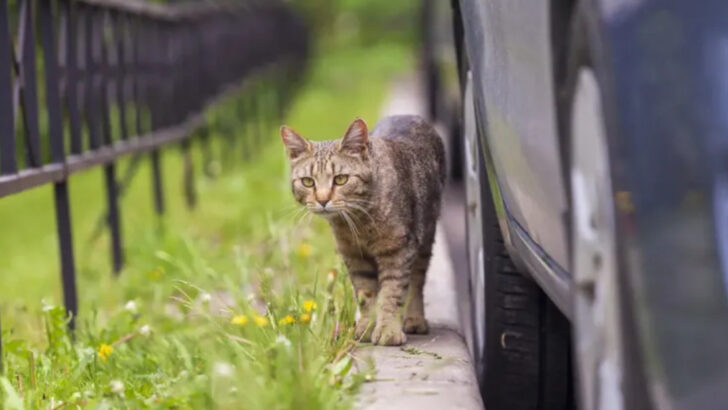Your backyard might feel like paradise—until your cat steps into it. From harmless-looking plants that can shut down their organs to garden tools that double as traps, the great outdoors hides more threats than most pet parents realize. Cats are curious, fast, and fearless. But that doesn’t mean they’re safe. Sometimes, it takes just one leap, one bite, or one nap in the wrong place to turn a sunny afternoon into an emergency vet visit. Before you open that door and let them roam, learn what’s really waiting outside. It’s not all butterflies and birds.
Toxic Plants

In the serene world of gardens, a cat may unwittingly sniff a toxic plant. Common outdoor plants like lilies, azaleas, and oleanders, though beautiful, are harmful to cats. Even a small taste can lead to severe reactions. Cats often explore with their mouths, increasing the risk of ingestion.
A curious nibble could result in symptoms ranging from drooling to more severe gastrointestinal distress. Immediate veterinary attention is often essential.
Fun fact: Many cat owners are unaware of the dangers posed by common household plants, making awareness vital.
Predatory Wildlife
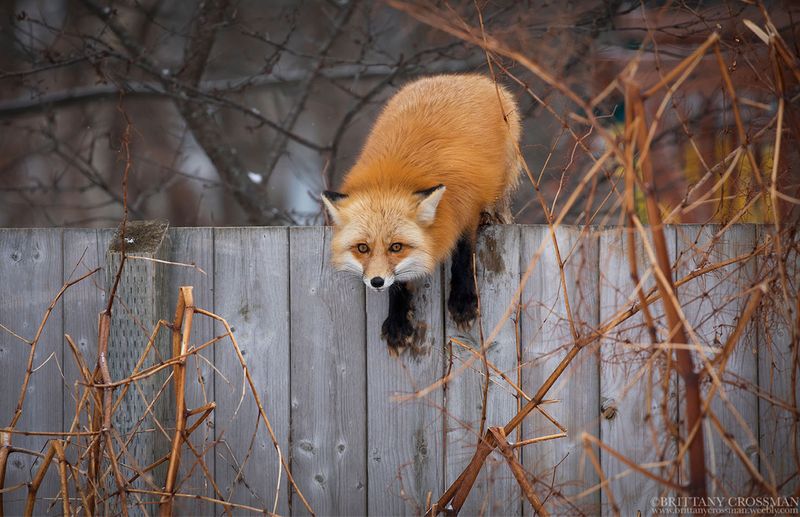
In the wild, cats aren’t always the top predators. Birds of prey, coyotes, and even some snakes view them as potential prey. A cat’s natural instinct to chase and pounce can lead them into a tricky situation.
They might find themselves face-to-face with a natural enemy.
In regions where predatory wildlife is common, it’s crucial to supervise outdoor activities. Did you know? Some birds of prey have been known to swoop down and carry off small animals, making vigilance essential for outdoor cats.
Busy Roads
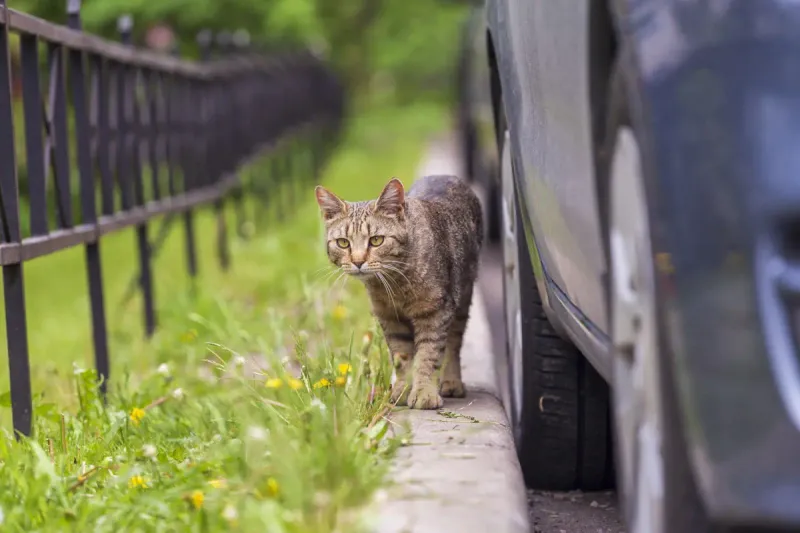
The bustling roads represent one of the most significant dangers to outdoor cats. Despite their agility, cats often misjudge the speed of oncoming vehicles. This miscalculation can, unfortunately, lead to accidents.
Urban areas are particularly hazardous, where traffic is constant and fast-paced. A dart across the road can have dire consequences.
It’s fascinating how cats, despite their remarkable reflexes, can fall victim to such dangers. Owners should consider reflective collars to improve visibility at night.
Aggressive Dogs

Not every dog is a cat’s best friend. Some dogs, driven by instinct, may aggressively chase cats. A sudden encounter with a dog can lead to a frantic chase or even injury.
Cats often climb trees to escape, but not all pursuits end safely.
Interestingly, despite their reputation, many dogs are simply curious, yet it’s the aggressive ones that pose a real threat. For outdoor cats, knowing the neighborhood dogs’ temperaments is a smart measure to ensure safety.
Harsh Weather Conditions
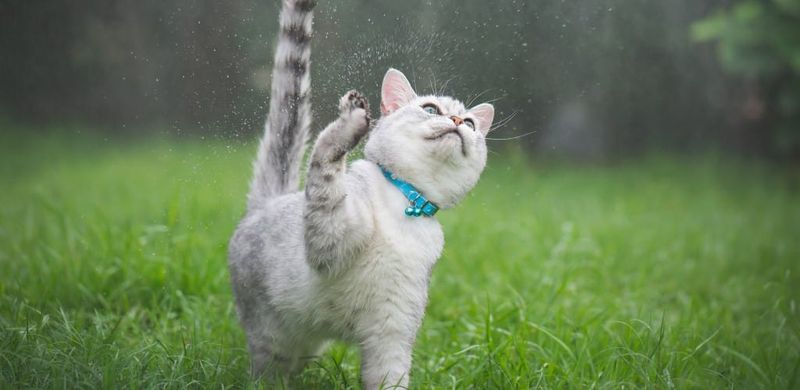
Weather can change rapidly, catching outdoor cats off guard. A sunny day can quickly turn into a torrential downpour or a snowstorm. These weather shifts can lead to hypothermia or heat exhaustion.
Cats, though resilient, aren’t invincible to nature’s wrath. Access to shelter is crucial during extreme weather conditions.
Fun fact: Cats have been known to seek shelter underneath cars during storms, which can be perilous if the vehicle starts moving.
Human Cruelty
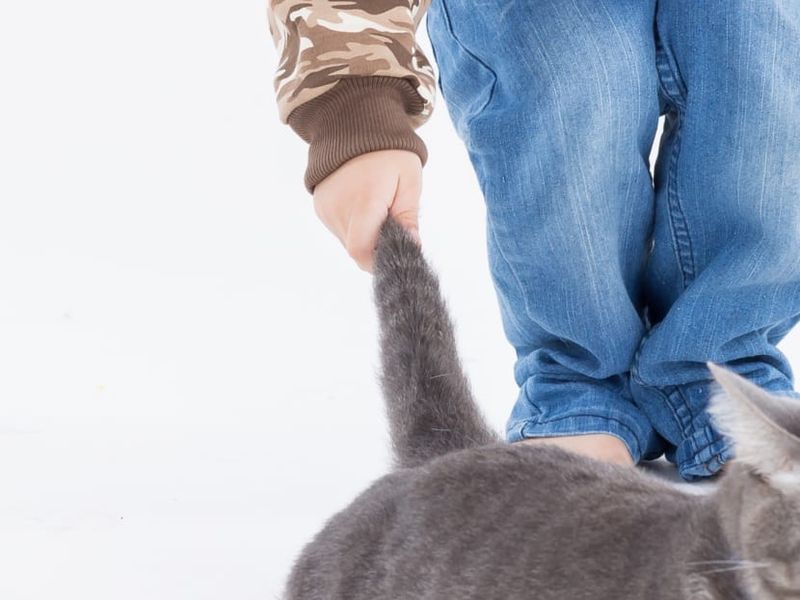
Tragically, not all humans are kind to animals. Cats can become victims of human cruelty, facing threats like poisoning or physical harm.
In areas where stray cats are common, some people resort to inhumane methods to control populations.
Reports of malicious acts towards cats highlight the importance of community vigilance.
Did you know? Cat protection organizations work tirelessly to combat cruelty and protect our feline friends, advocating for better enforcement of animal welfare laws.
Parasites
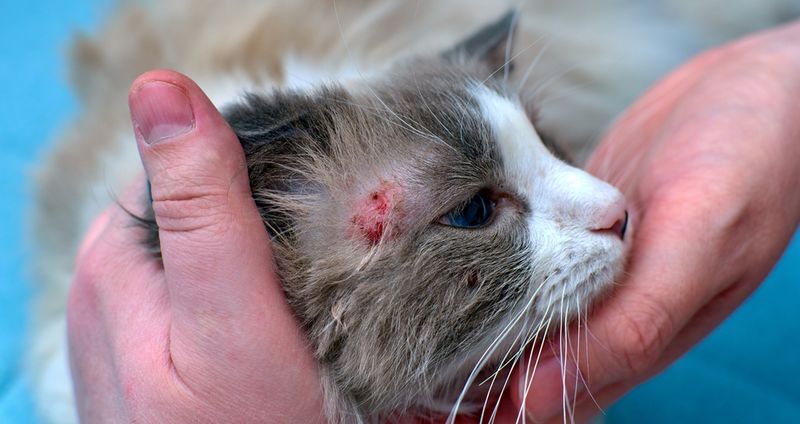
The great outdoors is home to a multitude of parasites waiting to latch onto an unsuspecting cat. Fleas, ticks, and worms are common culprits. A simple walk through grass can result in an infestation.
These pests can cause skin irritation and transmit diseases. Regular veterinary check-ups and preventive treatments are essential for outdoor cats.
Interestingly, flea collars and spot-on treatments have revolutionized pet care, offering effective solutions for parasite control.
Poisonous Chemicals

Inquisitive cats may wander into garages or sheds, exposing themselves to dangerous chemicals. Antifreeze, pesticides, and cleaning products are highly toxic.
Even small amounts can be lethal. Signs of poisoning include vomiting and seizures.

